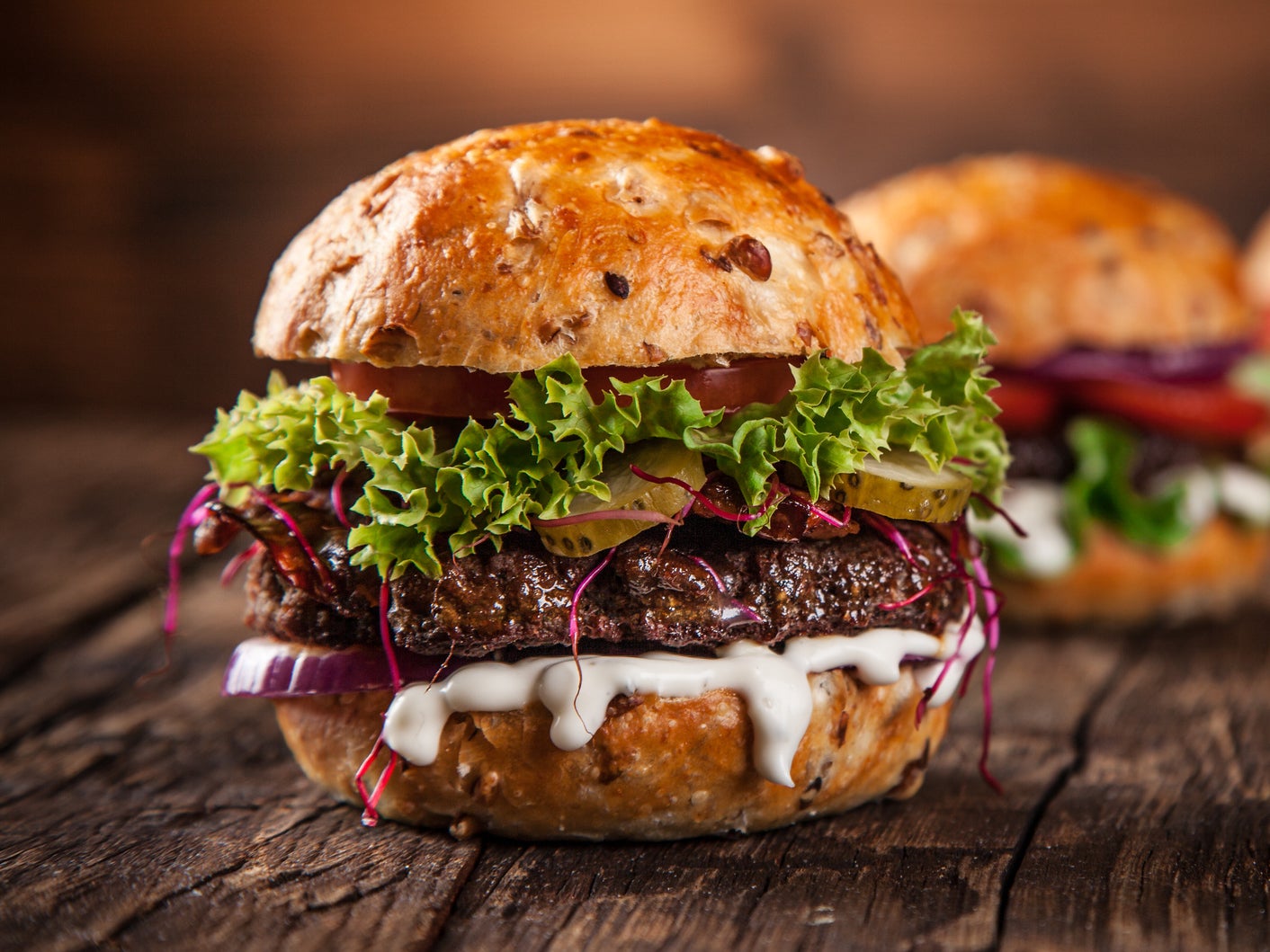Meat-free burgers ‘concealing’ high levels of salt, health campaigners warn
Some meat-free products contain more salt per serving than seawater

Many meat-free burgers contain levels of salt that are far higher than the recommended guidelines, health campaigners have warned.
According to Action on Salt, a group of health specialists based at Queen Mary University in London, meat-free burgers often contain more salt than burgers made with real meat, despite being widely regarded as “healthier” alternatives.
After carrying out a nationwide survey, the expert group discovered that beef burgers have an average salt content per serving of 0.75g, 0.14g less than the average salt content of meat-free burgers.
The researchers also analysed the packaging of 157 meat-free products, coming to the conclusion that many meat alternatives, including meat-free burgers, sausages and mince, are “concealing” the levels of the salt that they contain.
Following on from their research, Action on Salt is urging Public Health England (PHE) to address the high levels of salt found in meat-free products.
“The food industry have ensured greater availability of meat-free alternatives, but now they must do more to ensure that meat-free alternatives contain far less salt - at the very least lower than their meat equivalents,” says Action on Salt nutritionist Mhairi Brown.
“This survey drives home the urgent need for Public Health England to reinvigorate the UK’s salt reduction strategy.”
The government recommends that adults and children in the UK consume no more than 6g of salt a day.
Graham MacGregor, professor of cardiovascular medicine at Queen Mary University and chairman of Action on Salt, explains the importance of cutting down on one’s daily salt intake.
“Reducing salt is the most cost-effective measure to reduce the number of people dying or suffering from entirely unnecessary strokes and heart disease,” he says.

“Given the vast amounts of strokes and heart disease that could be avoided and huge savings to the NHS, it is incomprehensible that Public Health England are not doing more to reduce the amount of salt in our food.
“We are calling PHE to take urgent action.”
Torfurky’s ‘hickory smoked deli slices’ and Tesco’s ‘meat free eight bacon style rashers’ were the saltiest meat-free products analysed by Action on Salt, both containing more salt per 100g than seawater.
Professor Louis Levy, head of nutrition science at PHE, has stated that the government is committed to reducing salt intake across the nation.
"Our salt consumption has decreased over the last decade, but there is still a long way to go, as some foods still contain too much salt," Professor Levy says.
"Government has been clear with the food industry on the importance of meeting the 2017 salt targets.
"Since taking over salt reduction, PHE has been collecting data on industry's progress and we'll report later this year as planned."
Additional reporting by Press Association
Join our commenting forum
Join thought-provoking conversations, follow other Independent readers and see their replies
Comments
Bookmark popover
Removed from bookmarks